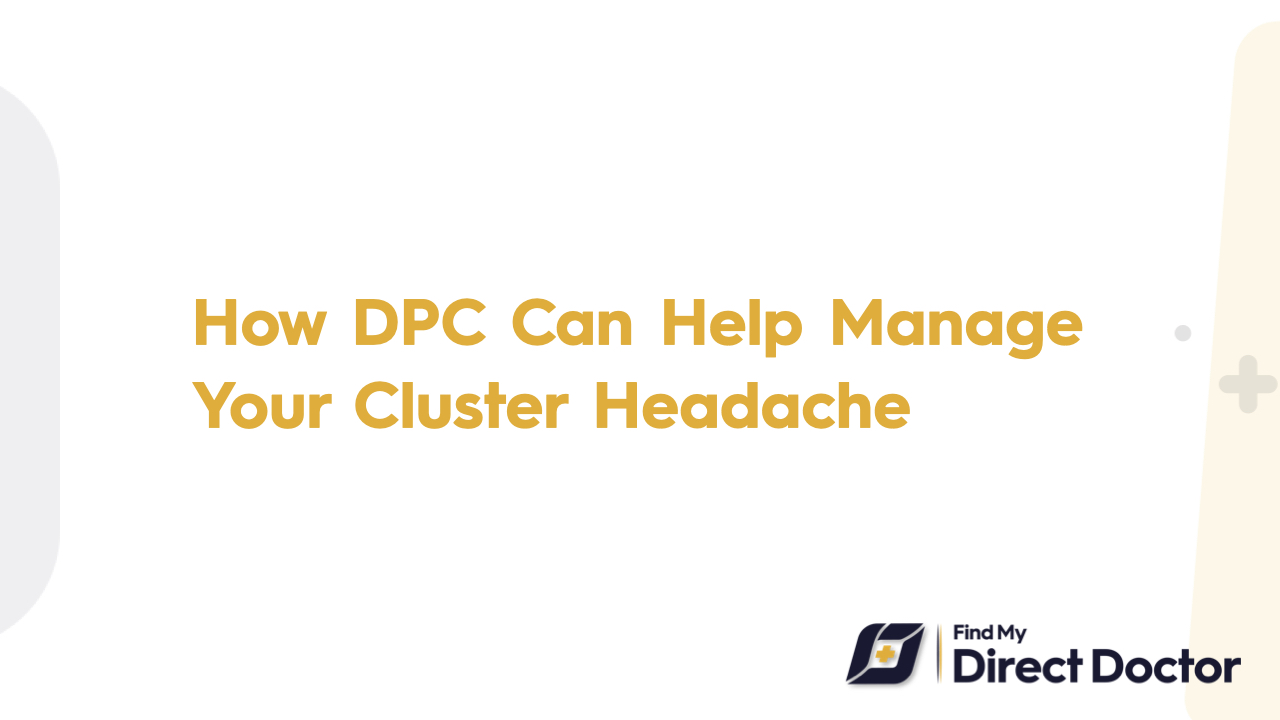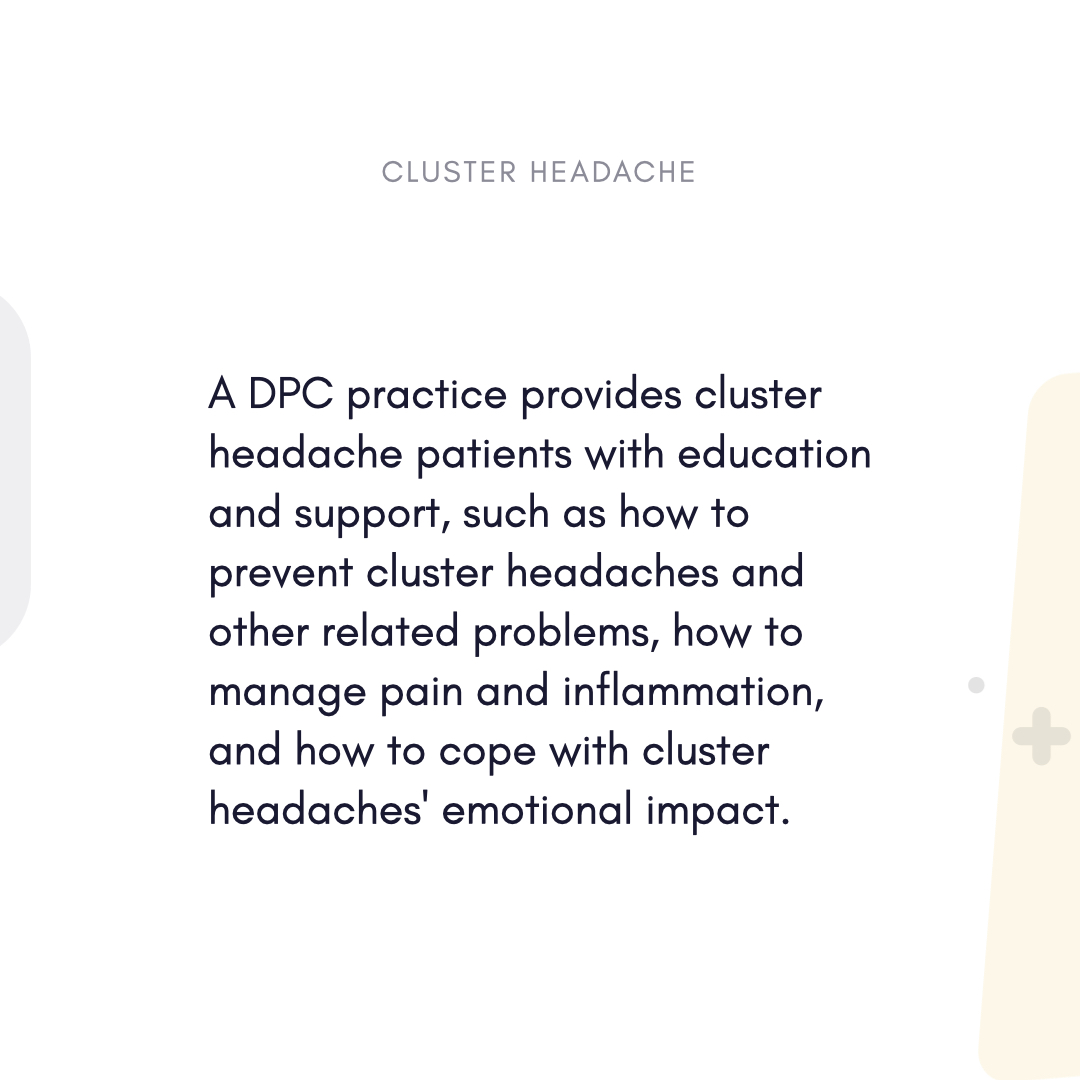Cluster Headaches and Direct Primary Care (DPC): Delivering Precision Care for Debilitating Pain
Often described as one of the most excruciating disorders, cluster headaches cause extreme, unilateral pain around the eye along with restlessness, nasal congestion, and tearing. These attacks follow weeks to months in cyclical "cluster periods," and demand quick, tailored treatment. Giving access, continuity, and customized treatment top priority—key elements for lowering suffering and enhancing quality of life—Direct Primary Care (DPC) provides a responsive, patient-centered approach to manage this complicated disease.

How DPC Helps Control Cluster Headache (Immediate Access & Prevention)
- Same-day/next-day appointments: Ensure timely delivery of abortive treatments like high-flow oxygen and subcutaneous sumatriptan to stop attacks quickly.
- Rapid prescriptions: Minimize delays for rescue medications during cluster periods.
- Preventive strategies: Adjust medications (lithium, CGRP inhibitors, verapamil) based on attack frequency and side effects. Monitor verapamil safety with frequent ECGs.
- Transitional relief: Use corticosteroids or occipital nerve blocks while long-term preventives take effect.
Neurology Collaboration Program (Advanced Interventions)
- Partner with neurologists to explore advanced therapies (e.g., nerve stimulation devices) while maintaining consistent treatment.
Tailored DPC Cluster Headache Control (Personalized Plans)
- Trigger tracking: Use digital tools to identify triggers (alcohol, sleep changes, seasons) and optimize prevention timing.
- Lifestyle counseling: Advise alcohol avoidance, sleep adjustments, and stress management to reduce triggers.
- Mental health integration: Offer mindfulness or counseling for anxiety/depression linked to chronic pain.
Why DPC Works for Cost-Conscious Patients? (Affordable Care)
- Reduced overhead: Eliminate third-party billing, lowering costs for visits, medications, and oxygen therapy.
- Transparent pricing: Monthly fees (USD 50–150) avoid surprise bills.
- Continuity: A consistent provider adapts treatments swiftly during cluster cycles.
- Reduced ER reliance: Early oxygen/abortive access minimizes costly emergency visits.
Limitations (Important Considerations)
- DPC does not replace insurance for advanced neurology care, imaging (MRI/CT), or hospitalizations.
- Some treatments (nerve blocks, implants) require specialist coordination beyond DPC’s scope.
Final Comments (Empowering Relief)
- DPC bridges gaps in traditional care by combining rapid response, customized prevention, and holistic support.
- Prioritizes accessibility and continuity to reduce attack frequency/severity and ensure timely interventions.
- Partnering with a DPC provider experienced in headache disorders offers a dedicated advocate for navigating this relentless condition, transforming fragmented care into a cohesive path toward relief.






